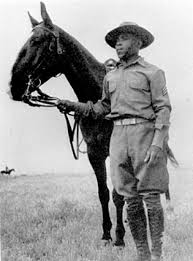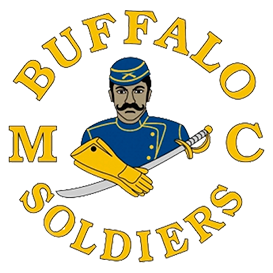Sign in
Create an Account
BUFFALO SOLDIERS HISTORY
African Americans have participated in military conflicts since the colonial era. However, the Buffalo Soldiers—comprised of former slaves, freedmen, and Black Civil War veterans—were the first African Americans to serve in the U.S. Army during peacetime.
With the onset of America’s westward expansion, the Buffalo Soldiers of the 9th and 10th Cavalry Regiments played a pivotal role in shaping the frontier. These brave men were tasked with escorting settlers, protecting cattle herds, and securing railroad construction crews. They also conducted military campaigns against various Native American tribes across a vast frontier that stretched from Montana to Texas, New Mexico, and Arizona.
During the Indian Wars, nearly 20% of U.S. Cavalry soldiers were African American. The Buffalo Soldiers participated in more than 177 engagements, demonstrating extraordinary combat skill, courage, and determination. Their bravery, resilience, and commanding presence earned them the nickname “Buffalo Soldiers,” a term believed to have been given by Native American warriors as a sign of deep respect—symbolizing the soldier’s fierce spirit and physical strength, qualities they associated with the sacred buffalo. That name, embraced with honor and pride, has endured through generations.
The contributions of the Buffalo Soldiers extended well beyond the western frontier. They served in the Spanish-American War, the Philippine Insurrection, the Mexican Expedition, World War I, World War II, and the Korean War. Their commitment and valor laid the foundation for the eventual integration of the U.S. military.
The story of the Buffalo Soldiers is one of unwavering courage and patriotism. Though times have changed, their legacy remains an indelible part of American history.
African Americans have always served with distinction in the nation’s armed forces. Some of their most significant sacrifices occurred during the Civil War. More than 180,000 African Americans fought for the Union Army, 30,000 served in the Navy, and 200,000 supported critical operations in labor, engineering, and medical services. Over 33,000 made the ultimate sacrifice for freedom and country.
After the Civil War, Congress authorized the formation of six all-Black peacetime units: the 9th and 10th Cavalry and the 38th, 39th, 40th, and 41st Infantry Regiments. The infantry units were later consolidated into the 24th and 25th Infantry Regiments.
During the westward expansion, Buffalo Soldiers were responsible for law enforcement, security, and maintaining order. In the course of their duties, they frequently encountered Native American tribes. The soldiers’ bravery and honor in both combat and diplomacy earned them the respect of many Native peoples, who began calling them “Buffalo Soldiers.” Knowing the significance of the buffalo in Native culture—as a symbol of strength, endurance, and resilience—the soldiers proudly embraced the name.
At least 18 Medals of Honor were awarded to Buffalo Soldiers for their actions during the Western Campaigns, and 23 African American soldiers received the nation’s highest military honor during the Civil War.
Important People
Henry O. Flipper
(1856-1940)First African – American to graduate from the U.S. Military Academy at West Point and serve as an officer in the 10th Cavalry.
Colonel Benjamin H. Grierson
(1826-1911)Commander of the 10th Cavalry for 22 years
Colonel Edward Hatch
(1832-1889)Commander of the 9th Cavalry for 23 years.
General Colin L. Powell
(1937-)First African – American four-star general of the United States and chairman of the Joint Chiefs of Staff; through his efforts, a memorial to the Buffalo Soldiers was built at Fort Leavenworth, Kansas.
General Fred A. Gorden
(1940-)First Black Commandant of cadets of the U.S. Military Academy at West Point.
our story
history

1866
The Buffalo Soldiers
Congress approves the enlistment of African – American soldiers in the regular Army, resulting in the formation of the 9thand 10th Cavalry and the 24th and 25th Infantry Regiments.
1867
The Western Frontier
African – American regiments are sent to the Western Frontier.
1877
First African-American to graduate from West Point
Lieutenant Henry O. Flipper becomes the first African – American to graduate from
West Point and the first African – American Officer in any of the Buffalo Soldiers regiments.
1953
Integration
All Fighting units in the American Armed Forces are integrated.
1992
The Buffalo Soldiers Monument
The Buffalo Soldiers Monument is unveiled At Fort Leavenworth, Kansas.
